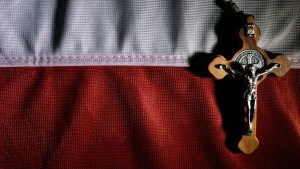Lenten Campaign 2025
This content is free of charge, as are all our articles.
Support us with a donation that is tax-deductible and enable us to continue to reach millions of readers.
The Federal Statistical Office (FSO) of Switzerland recently released a report that found a significant rise in those who claim no religious affiliation, in the last five decades. The figures show a trend of dwindling belief in organized religions, which suggests that the non-believers could become the majority in the coming years.
According to SwissInfo, the recently accumulated data was placed up against previous reports from the FSO that went back 50 years. In 1970, virtually the entire nation of Switzerland was Christian, with a nearly even split between Catholics and Protestants. While the Catholic Church has retained more members than Protestant denominations, both forms of Christianity saw major losses, with Protestants falling from 49% to 21%, and Catholics falling from 46% to 32%.
There was small growth in Muslim communities of Switzerland, rising by about 5 points in 50 years, but the largest increase was seen in the portion of the population that claims no religion. Also known as “nones,” these people who are not religiously affiliated currently account for about 32% of the Swiss population, way up from about 1% in 1970. This group tends to be more highly educated and is more likely to live in an urban area.
A closer look at the statistics
While the number of people who do not belong to an organized religion is growing, this is not to say that these people do not believe in God. According to the report, more than 40% of those who did not claim a religion acknowledged that they do believe in God, with about 9% citing belief in one God, and about 30% citing belief in some form of higher power. A further 22% said they were unsure of the existence of God and were not sure it could be proven. Overall, only 38% were firm in their belief that God does not exist.
When broken down by age, the group most likely to say they do not belong to any religion are those aged 25-44, with more than two-fifths of the Swiss population. This is especially troubling to churches, because this is the age group that would introduce their faith to the next generation. That so many of them do not belong to any formalized religion suggests that church closures and parish mergers are in Switzerland’s future.
A generational difference
Despite their parents’ lack of interest in faith, the next generation, currently aged 15-24, seems to be slightly more religious than their parents. The data found that less than a third (31%) of this group claims no formal religion, which was mirrored by the group aged 45-64, at 32%. Only 20% of those aged 65+ responded that they did not belong to an organized religion.
Click here to read the entire report, including predictions on the future of the religious landscape of Switzerland from religious sociologist Jörg Stolz, director of the Institute for Social Sciences of Religions at the University of Lausanne.



